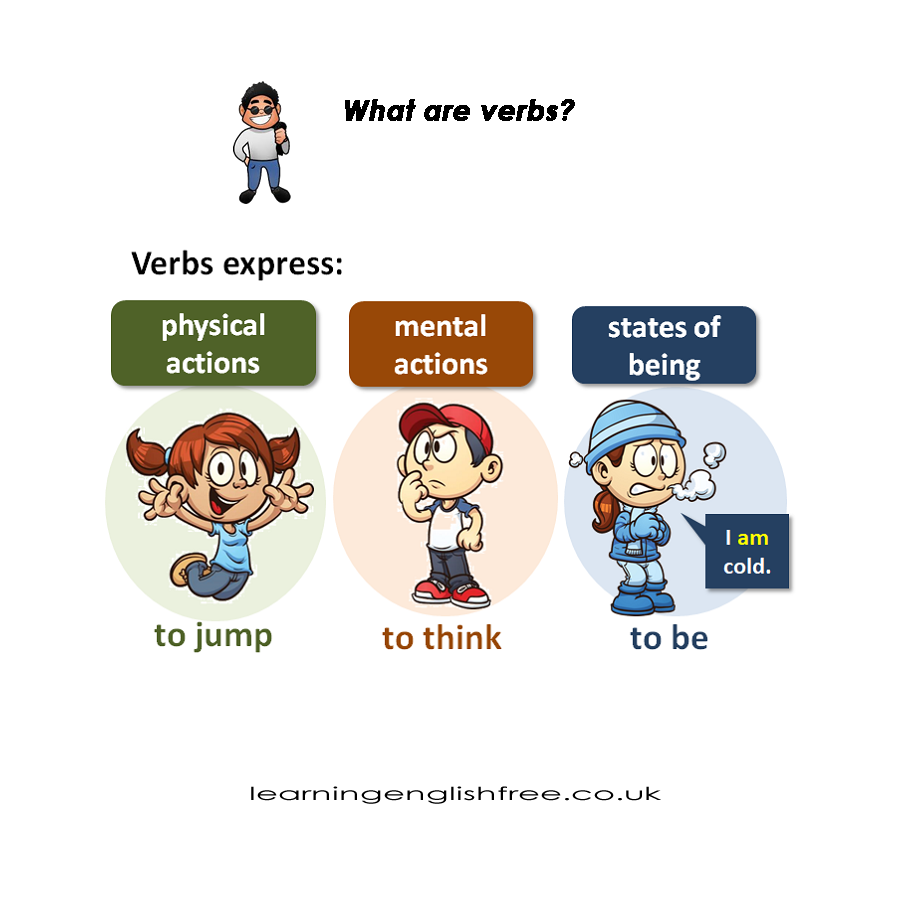
What are verbs?
Verbs are words that describe actions, states, or occurrences. They are an essential part of sentences as they tell us what the subject is doing or what is happening. Here are different types of verbs explained in simple English, along with examples:
-
Action Verbs: These verbs describe physical or mental actions.
- Example: "She runs every morning." (Physical action)
- Example: "He thinks deeply about issues." (Mental action)
-
Linking Verbs: These verbs do not show action. Instead, they link the subject of the sentence to additional information about the subject.
- Example: "The soup tastes good." ('Tastes' links 'soup' to 'good')
- Example: "She is a teacher." ('Is' links 'she' to 'teacher')
-
Helping (Auxiliary) Verbs: These verbs are used with a main verb to form different tenses, voices, or moods.
- Example: "He is running a marathon." ('Is' is helping the main verb 'running')
- Example: "She has finished her work." ('Has' is helping the main verb 'finished')
-
Modal Verbs: These verbs express necessity, possibility, permission, or ability.
- Example: "You can play the piano." (Ability)
- Example: "We must leave now." (Necessity)
-
Transitive Verbs: Verbs that need a direct object to complete their meaning.
- Example: "She reads a book." ('Reads' needs the object 'book' to make sense)
-
Intransitive Verbs: Verbs that do not require a direct object.
- Example: "The sun shines." (No direct object needed)
-
Regular Verbs: Verbs that form their past tense and past participle by adding -ed to the base form.
- Example: "I walked to the store." (Past tense of 'walk')
-
Irregular Verbs: Verbs that do not follow the standard rules for forming their past tense and past participle.
- Example: "He ate the whole pizza." (Past tense of 'eat')
-
Stative Verbs: Verbs that describe a state or condition rather than an action.
- Example: "She loves chocolate." ('Loves' describes a state of feeling)
-
Dynamic Verbs: Verbs that show an action or process.
- Example: "Birds fly in the sky." ('Fly' shows an action)
Understanding the different types of verbs and how they function in a sentence is crucial for constructing clear and grammatically correct sentences.
